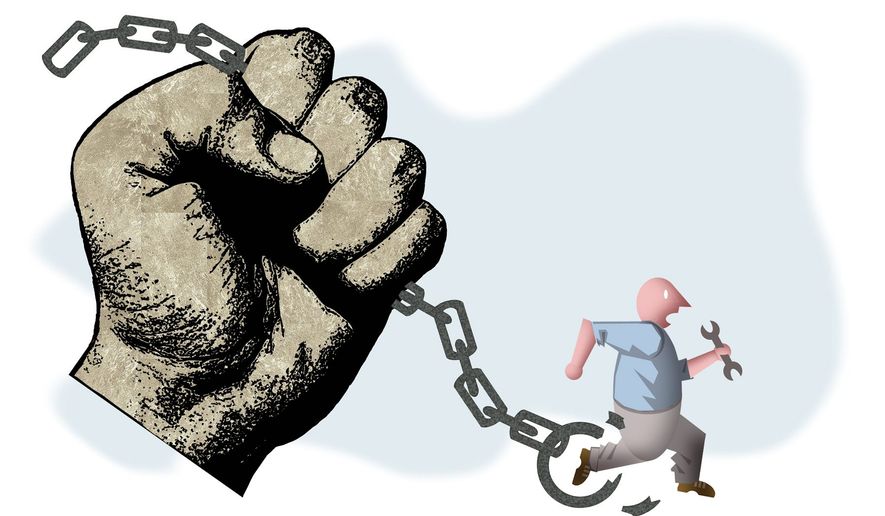OPINION:
For decades, the strike has been accepted as a calculated risk for union bosses and dues-paying members.
By walking out on the job, strikers traditionally give up pay and benefits for — in their eyes — the chance at higher pay and better benefits down the road. The baseline calculation is that the long-term gain outweighs any short-term loss.
The more ulterior calculation for union bosses is that a successful strike becomes a proof of concept for dues-payers, especially with most Americans skeptical of the union value-add in the first place.
For employers, the strike calculation is based on several factors. Could a strike send more business to competitors that may be able to keep their new business? Are employees being pumped full of anti-employer bias during the walkout that may linger after the strike is over? Is finding temporary employees to keep bare-bones operations in place too difficult?
The historic balance that has been struck provides pain on both sides so that an agreement can be achieved sooner than later.
But that was then. Over time, the labor movement has become radically more left-wing and exponentially more self-serving, refusing to negotiate with employers in good faith all too often.
Case in point: the state of Massachusetts, where workers are on the verge of securing unemployment insurance after 30 days on strike. State Sen. Paul Feeney recently proposed Senate Bill S1172, which would purportedly ensure that collective bargaining talks are “fair and balanced.”
Fair and balanced? Mr. Feeney’s Alice in Wonderland pitch suggests that an employer is the sole contributor to an unemployment insurance program that should fund employees on strike — against themselves.
That’s about as fair and balanced as MSNBC reporting on former President Donald Trump.
Employers provide unemployment insurance in each state to compensate employees who are out of work through no fault of their own. Since when is a voluntary strike a no-fault event?
If Democrats and their union allies can move the goal posts to force employers into funding strikes against themselves, why not demand even more assistance during a walkout?
Why shouldn’t companies also cover strikers’ mortgage or rent? Car loans? Utility bills?
There is no logical conclusion to that argument. Would taxpayers revolt if they had to pony up those payments?
Fringe elements of the union movement have always existed. In the 1970s, I pushed back against strikers receiving food stamps. Unemployment benefits for strikers would also come up in union demands from time to time, but it was generally understood that such demands were made in bad faith.
The National Labor Relations Act of 1935 was initially set up to provide new powers to unions in disputes over wages and working conditions. It guaranteed the right of private sector employees to join unions, engage in collective bargaining, and participate in strikes without fear of losing their jobs.
Not surprisingly, the NLRA made it more likely for workers to strike, as antagonistic union activity exploded in the 1930s and 1940s.
Strikes became so common that the 1947 Taft-Hartley Act emerged as a necessity, establishing balance and new parameters on illegal union activities.
“Wildcat” strikes that took place without approval from union leadership were banned. Illegal boycotts to pressure employers in their business relationships were similarly prohibited.
States were also permitted to enact “right to work” laws protecting employees from being railroaded into paying union dues.
The labor movement’s latest demand in Massachusetts, endorsed by Democrats who rely on union funding, undercuts the federal law that has governed U.S. labor relations since the 1940s.
New York is currently the only state in the country that offers unemployment benefits to striking workers (although you can’t receive a check until eight weeks after a walkout), with Massachusetts now potentially going further by shortening the ineligibility period.
Here is a fact that need not be footnoted: Massachusetts and New York are two of the least attractive business destinations in America. Corporate management silently votes when companies leave or avoid states where parasitic unions treat employers like victimized hosts to be consumed.
Companies have fled en masse to states like Florida and Texas, taking their jobs and opportunities with them. When it comes to labor relations, it’s no coincidence that these states are also significantly more fair and balanced.
• Rick Berman serves as president of RBB Strategies.




Please read our comment policy before commenting.